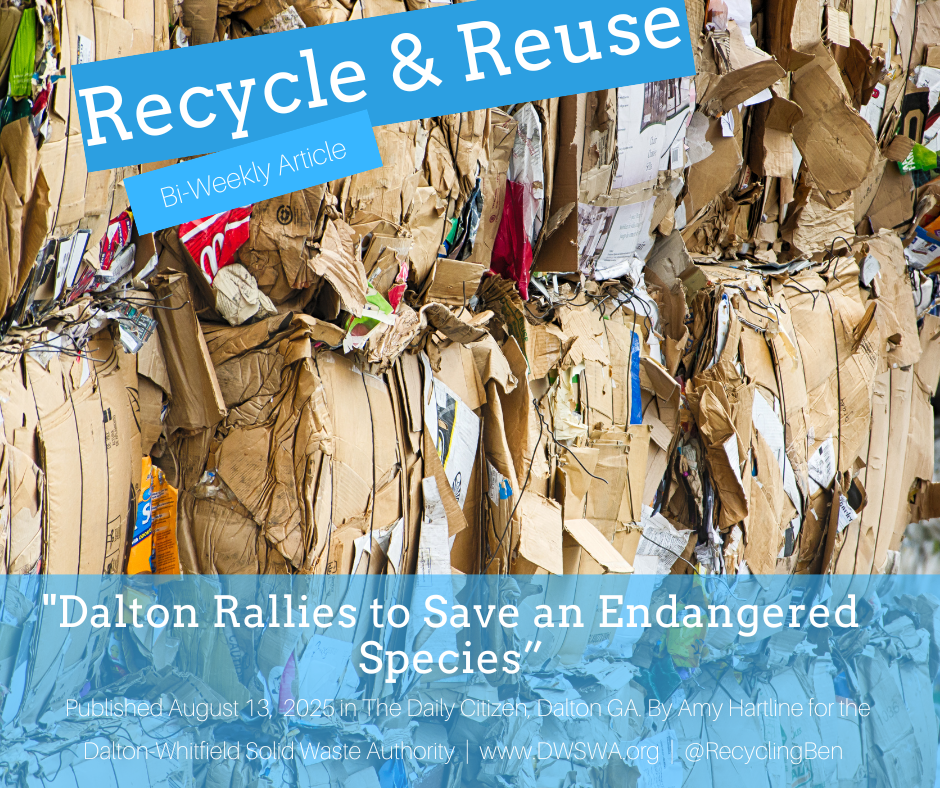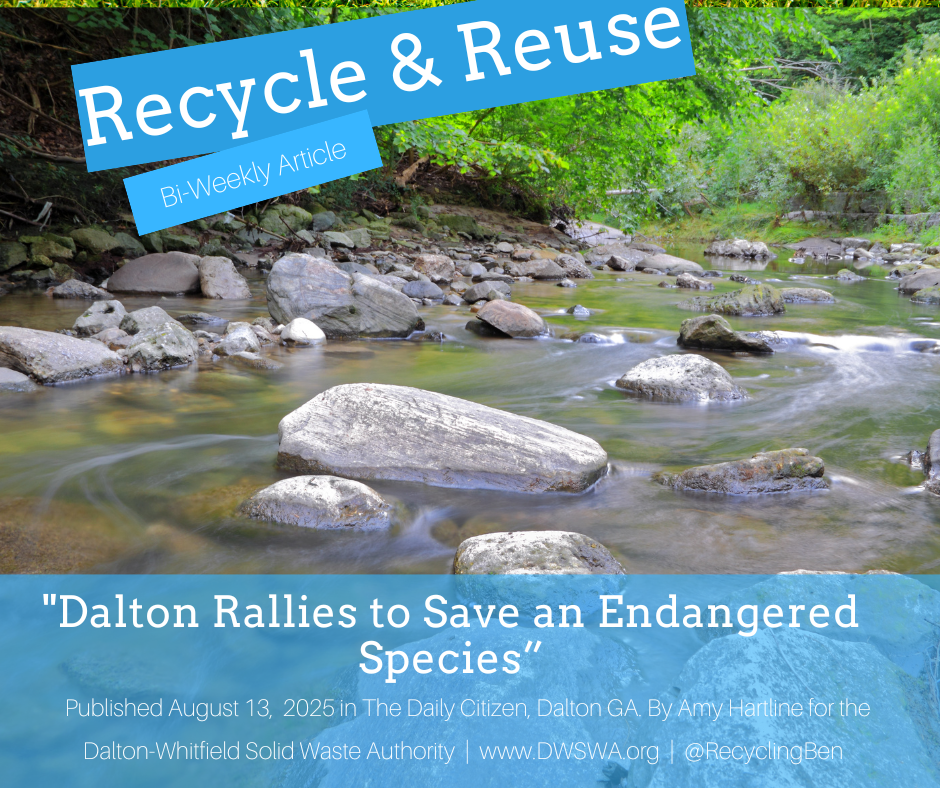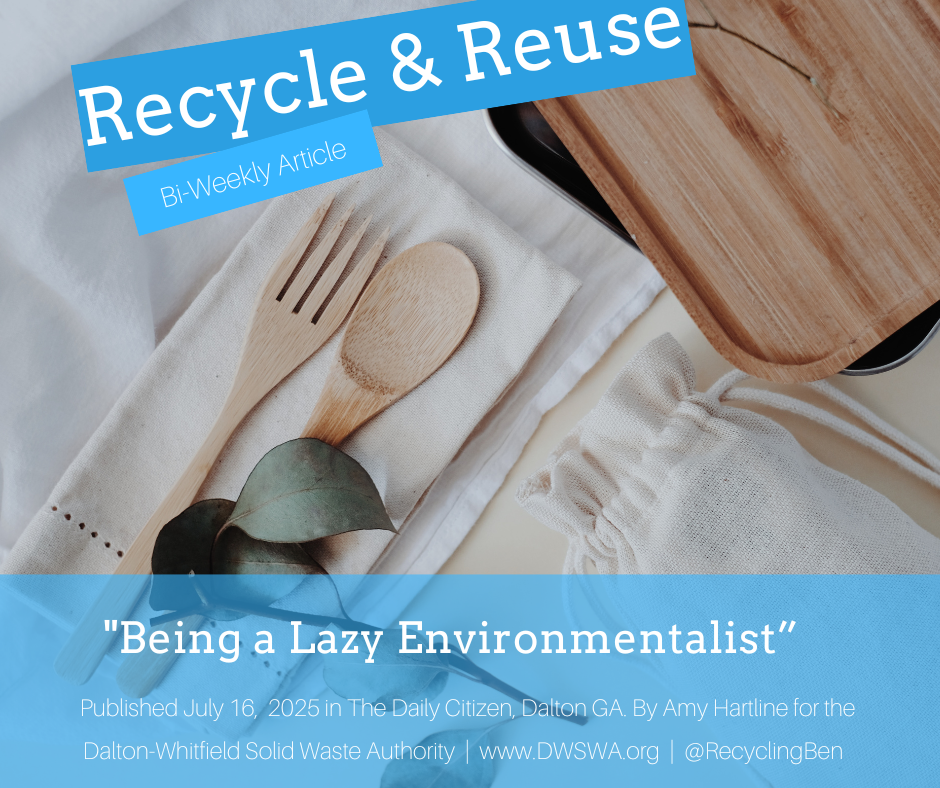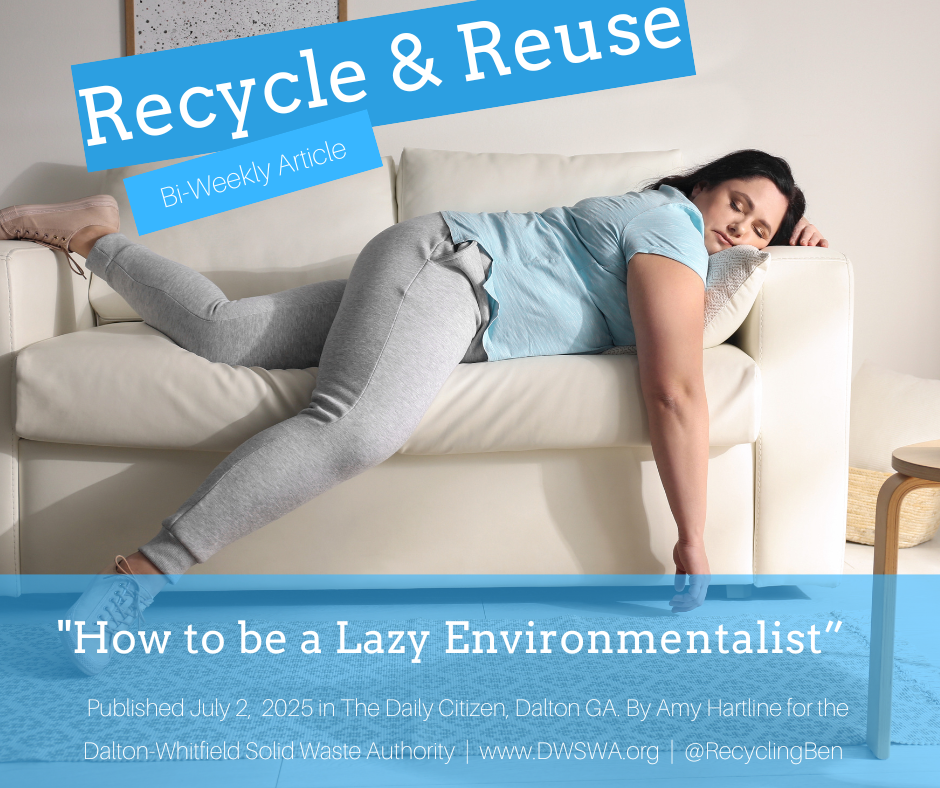Seven Tips to Secure Your Load For Cleaner Roads
/This pickup truck bed has loose trash that can easily fly out of the back of the vehicle and litter the road. Help keep our local roads clean by securing loads and putting trash in the right place.
(Published on Wednesday, August 26, 2015 in The Daily Citizen newspaper, Dalton, GA.)
Recycle & Reuse: Seven Tips to Secure Your Load For Cleaner Roads
A quick glance at local roadways reveals a daily parade of full pickup trucks, dump trucks, hitched trailers, and vehicles with loads on the roof. Some carry tree limbs, others furniture, or even bags of household garbage heading to a convenience center for disposal. All of these vehicles are a potential source for litter on the road that eventually needs to be cleaned up by someone else.
Sometimes small items like paper wrappers and plastic bags fly out of the back of pickup truck beds or dump trucks hauling garbage. On other occasions individuals may intentionally throw trash, like bags of fast food wrappers, out the window because they don’t want to wait to get to a trashcan. Whether a litterer is doing so because of negligence, bad habits, laziness, or selfishness is hard to say. Each situation is different. But, regardless of the reason litter hurts everyone.
In recent days you have read articles about the causes of litter and the great effort it takes the local public works departments and volunteers to clean up. According to the Litter in America study, litter cleanup costs the U.S. more than an estimated $11.5 billion each year, with businesses paying $9.1 billion and governments, schools, and other organizations picking up the remainder. Besides the cost of cleaning up trash after it’s been tossed on the road there is the possibility of being fined.
Under Georgia’s Litter Law anything leaving a vehicle, intentional or not, is litter and can result in a citation. An arresting officer may also impound the vehicle if the item(s) littered exceed 10 pounds or 15 cubic feet, and the driver can be fined up to $5,000 or spend up to 12 months in jail. When surveyed by Georgia DOT, 77% of Georgia motorists said they have seen something blow out of a vehicle onto the road.
It doesn’t take much time, effort, or money to make sure your load is properly secured. For example, trash or recyclables can be collected in sturdy bags and covered with a plastic tarp or cargo netting for transport. Or instead of throwing trash loose into a pickup truck bed drivers can secure a 5-gallon bucket with a lid in a corner of the bed for use as a trashcan. At the end of the trip drivers can empty the contents into the appropriate trash and recycling receptacles. Those small efforts do make a difference and help maintain clean and safe roads for everyone.
Though the vehicles for hauling materials form one place to another may look different, there are some basics things that all drivers can do to help prevent litter on the road. It all comes down to securing your load for cleaner and safer roads. Here are seven tips from the Dalton-Whitfield Solid Waste Authority’s webpage about securing your load at www.dwswa.org/secure-your-load.
• Tie it Down: Large or heavy items should be firmly secured with solid straps, rope, bungee cords, or netting. Tie large items directly to your vehicle. Small string is not adequate – tie down materials must be able to withstand the wind loads of 70 mph on the freeway. A lot of people are not aware that at 70 mph, that wind is providing about a 20-pound-per-square-foot push on those loads, which can dislodge those loads and push them right off your vehicle. Don’t use restraints if they are frayed, cut or damaged in any way.
• Cover it Up: For loose, lighter items such as tree clippings, a sturdy plastic or canvas tarp or netting can be used to keep items in place. Tie the tarp securely, or it might become road debris as well.
• Lighter Goes Lower: Put lighter weight things at the bottom of the load and make sure they are secure. Evenly distribute the load to prevent it from sliding.
• Don’t Overload: Keep material level with truck bed or trailer unless tied down, netted or tarped. Materials below the truck bed should also be secured if there’s any chance of them blowing out or falling from the vehicle.
• Double-Check: Double check your load to make sure it is secure at the back and on the sides and top. Remember that loads can move and settle during a journey, allowing restraints to loosen. If possible, recheck restraints shortly after beginning your trip.
• Make Sure It’s Roadworthy: Ensure both the vehicle and trailer are in good mechanical condition and roadworthy. Make sure your vehicle is rated to tow the load. Drive to the conditions: your load will make your vehicle less maneuverable and it will take longer to stop.
• Ask Yourself: Is there any chance of debris falling or blowing out of my vehicle? Would I feel safe if I were driving behind MY vehicle? What would happen to MY load if I had to brake suddenly or if I hit a bump?
Liz Swafford is the Recycling and Education Program Coordinator for the Dalton-Whitfield Solid Waste Authority. Learn more about recycling in Whitfield County by visiting www.DWSWA.org or call 706-278-5001.































